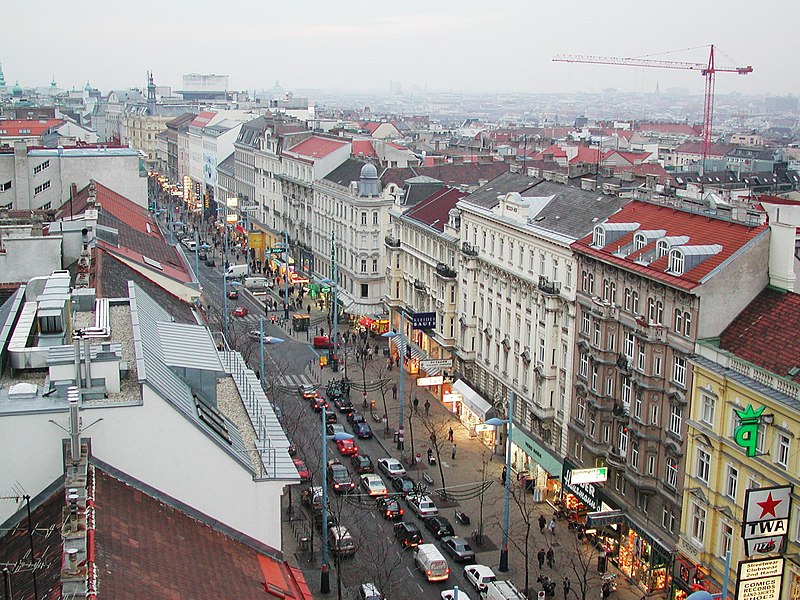Difference between revisions of "About Austria"
(Created page with "{{#eimage:https://www.cia.gov/library/publications/the-world-factbook/graphics/flags/large/au-lgflag.gif|410x579px|thumb|'''The official flag.'''<BR/>Source: cia.gov.}} Once ...") |
|||
| Line 1: | Line 1: | ||
| − | {{#eimage: | + | {{#eimage:http://upload.wikimedia.org/wikipedia/commons/thumb/8/81/Mariahilferstrasse1.jpg/800px-Mariahilferstrasse1.jpg|410x579px|thumb|'''The Mariahilferstrasse shopping area in Vienna.'''<BR/>Source: Wikipedia.org.}} |
Once the center of power for the large Austro-Hungarian Empire, [[Austria]] was reduced to a small republic after its defeat in World War I. Following annexation by [[Nazi Germany]] in 1938 and subsequent occupation by the victorious Allies in 1945, [[Austria]]'s status remained unclear for a decade. A State Treaty signed in 1955 ended the occupation, recognized [[Austria]]'s independence, and forbade unification with [[Germany]]. A constitutional law that same year declared the country's "perpetual neutrality" as a condition for Soviet military withdrawal. The Soviet Union's collapse in 1991 and [[Austria]]'s entry into the European Union in 1995 have altered the meaning of this neutrality. A prosperous, democratic country, [[Austria]] entered the EU Economic and Monetary Union in 1999. | Once the center of power for the large Austro-Hungarian Empire, [[Austria]] was reduced to a small republic after its defeat in World War I. Following annexation by [[Nazi Germany]] in 1938 and subsequent occupation by the victorious Allies in 1945, [[Austria]]'s status remained unclear for a decade. A State Treaty signed in 1955 ended the occupation, recognized [[Austria]]'s independence, and forbade unification with [[Germany]]. A constitutional law that same year declared the country's "perpetual neutrality" as a condition for Soviet military withdrawal. The Soviet Union's collapse in 1991 and [[Austria]]'s entry into the European Union in 1995 have altered the meaning of this neutrality. A prosperous, democratic country, [[Austria]] entered the EU Economic and Monetary Union in 1999. | ||
| Line 5: | Line 5: | ||
Source: [https://www.cia.gov/library/publications/the-world-factbook/geos/au.html] | Source: [https://www.cia.gov/library/publications/the-world-factbook/geos/au.html] | ||
| − | [[ | + | Back to [[Adopting from Austria]] |
Revision as of 00:19, 20 August 2014
Once the center of power for the large Austro-Hungarian Empire, Austria was reduced to a small republic after its defeat in World War I. Following annexation by Nazi Germany in 1938 and subsequent occupation by the victorious Allies in 1945, Austria's status remained unclear for a decade. A State Treaty signed in 1955 ended the occupation, recognized Austria's independence, and forbade unification with Germany. A constitutional law that same year declared the country's "perpetual neutrality" as a condition for Soviet military withdrawal. The Soviet Union's collapse in 1991 and Austria's entry into the European Union in 1995 have altered the meaning of this neutrality. A prosperous, democratic country, Austria entered the EU Economic and Monetary Union in 1999.
Source: [1]
Back to Adopting from Austria
